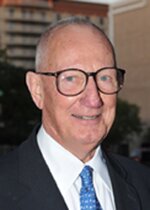WHY DUBAI'S GEOGRAPHY MATTERS
The debate over the prospective takeover of several U.S. port operations by a company based on the Arabian Peninsula is over. Both sides marshaled powerful arguments. Proponents favored rewarding a progressive, modernizing Arab ally in the struggle against terrorism. Opponents cited dangers of infiltration and security risks. The opponents prevailed. President Bush was blindsided, apparently unaware of the entire initiative until it became a diplomatic and political fiasco.
Focus of the issue was Dubai (Dubayy as locals prefer to spell it), a port city on the Persian Gulf, where the company in question is based. Dubayy is indeed an exception in the region: it boasts a super-efficient port at Jebel Ali, a spectacular skyline dominated by financial institutions, high-rise condominiums and luxury hotels, a state-of-the-art airport featuring a domestic airline with an international network, a roaring real-estate market, and a thriving tourist industry with attractions ranging from world-class golf courses to top-circuit race tracks. No problem getting a drink here. Women wear what they wish and drive cars when they want. Dubayy is what the West wants the Arab world to be.
So why not let an efficient Dubayy company operate U.S. ports? In his New York Times column of 15 March, 2006, Thomas Friedman bemoans the way the "facts" became obscured during the debate. We have rejected rather than rewarded the Arab progress Dubayy represents, he argues. Dubayy, he states, is the "Arab Singapore", model for the Arab world and symbol for the kind of cooperation America should welcome.
There's just one problem: Singapore is a sovereign state with maturing democratic institutions, and Dubayy is neither sovereign nor democratic.
Lost in the discussion, as so often happens in the United States, is the geography behind the issue, in this case the political geography. Dubayy is modern indeed, but it is part of a country called the United Arab Emirates (UAE). This UAE consists of seven territories once run by emirs under British colonial supervision, the so-called Trucial States, combined into a single entity in 1971. About the size of South Carolina, the UAE is now a kind of federation controlled by a "Supreme Council of Rulers" that elects, from among its members, a president who serves for five years; the "Rulers" also appoint a Council of Ministers. Other administrative bodies have no executive or other power, including a National Consultative Council in which citizen-members can express themselves, but have no power to alter the course of events.
By far the largest of the seven Emirates is not Dubayy, but Abu Dhabi (Abu Zaby as locals write it), which covers nearly 90 percent of the federation's territory and controls most of its oil and gas, yielding about two-thirds of the country's external revenues. The coastal city of Abu Zaby is the UAE's capital. In my experience, residents of Dubayy tend to look down their noses at the upstarts in Abu Zabi, who got rich from hydrocarbons long after Dubayy had made itself wealthy from entrepreneurship and trade (not to mention smuggling and graft).
So here's the problem. Dubayy is just a 1500-square-mile sliver of the United Arab Emirates, enmeshed in a political system that is not exactly what President Bush appears to have in mind for the Arab world. Dubayy today is free to pursue its enterprises, but cross the border into other parts of the country, and the cultural landscape changes quite remarkably. If indeed Dubayy were an Arab Singapore, the deal should have gone through. But it is not, and its entanglement with the UAE generates sufficient uncertainty to scupper the deal.

